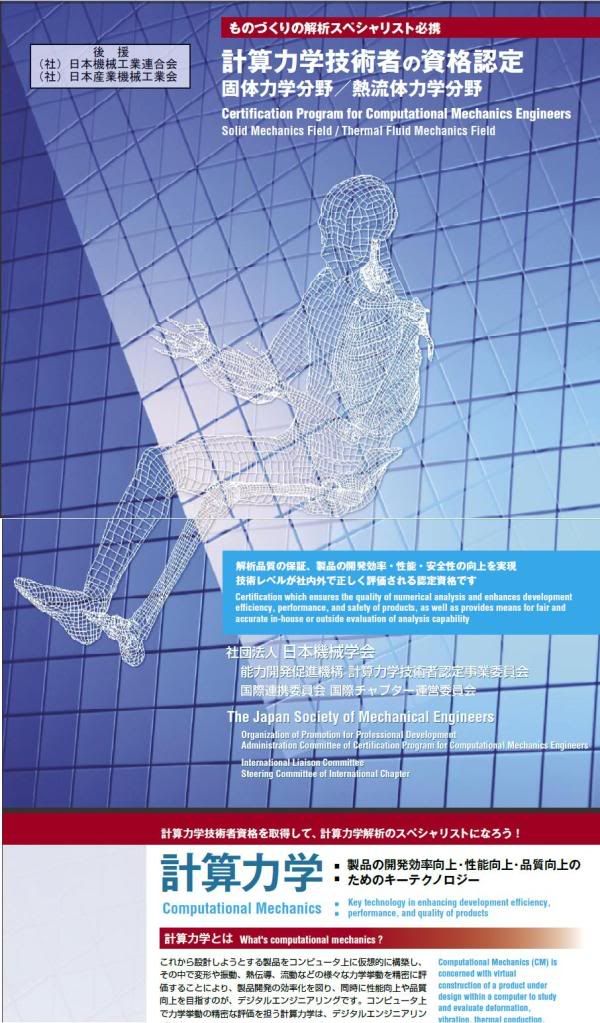In this forum, I found this posted by someone....
刑法(criminal law), 立憲政治(Constitutional Government), 自動車(Automobile), 資本(Capital(economy term)), 株式会社(joint-stock corporation ), 防空(Anti-Air), 国民(People in the Nation), 積分(Integral(Math)), 関税(Tariff), 駆逐艦(Naval Destroyer)....etc

Source: 日本機械学会(Japanese Society of Mechanical Engineers) Homepage
www.jsme.or.jpLet's see...
機械(Machine)、流体力学(Hydrodynamics)、製品(product)、技術者(technician)、資格(qualification)、認証(certification)、産業(industry)、工業(exploit)、効率(efficiency)、性能(efficiency, performance)、安全性(safety)、社団法人(corporation),
I think what he/she said is right...
Currently, many (modern) Sino-Korean words are borrowed from Modern Sino-Japanese words (Actually traslated western terms.....) like those, while many words from Ancient Chinese also exist..
Let's see those words once again...
(kanji)(Japanese, Korean)
刑法(Kei-hou, Hyeong-boeb)
立憲政治(rikken-sei-ji, ib-heon-jeong-chi)
自動車(ji-dou-sha, ja-dong-cha)
資本(si-hon, ja-bon)
株式会社(kabu-shiki-kai-sha, ju-shik-kai-sha)
防空(bou-kuu, bang-gong)
国民(koku-min, guk-min)
積分(seki-bun, jeok-bun)
関税(kan-zei, gwan-se)
駆逐艦(ku-chiku-kan, gu-chuk-ham)
機械(ki-kai, gi-gye)
流体力学(ryuu-tai-riki-gaku, yu-che-yeok-hak)
製品(sei-hin, je-pum)
技術者(gi-juttsu-sha, gi-sul-ja)
資格(si-kaku, ja-gyeok)
認証(nin-shou, in-jeung)
産業(san-gyou, san-up)
工業(kou-gyou, gong-up)
効率(kou-ritsu, hyo-yul)
性能(sei-nou, seong-neung)
安全性(an-zen-sei, an-jeon-seong)
社団法人(sha-dan-hou-jin, sa-dan-beop-in)
Let's see some more modern Sino-words shared between Japanese and Korean
(Kanji)(Mean, Japanese, Korean)
国会(congress, Kokkai, guk-hue)
大統領(national president, dai-tou-ryou, dae-tong-ryeong)
電算機(computer, den-san-ki, jeon-san-gi)
(note: 電算機 is rarely used in common life. This term may be used in legal term. In Japanese and Korean, computer is just 'kon-pyu-ta-', and 'keom-pyu-teo')
指数(index(in math), si-suu, ji-su)
対数(logarthim, tai-suu, dae-su)
導関数(derivative, dou-kan-suu, do-ham-su)
航空母艦(aircraft carrier, kuu-kou-bo-kan, hang-gong-mo-ham)
飛行機(airplane, hi-kou-ki, bi-hang-gi)
爆撃機(bomber plane, baku-geki-ki, pok-gyeok-gi)
核融合(nuclear fussion, kaku-yuu-gou, haek-yung-hab)
憲法(constitution, ken-pou, heon-beob)
建設(construction, ken-setsu, geon-seol)
独逸(Germany, doitsu, dok-il)
寄宿舎(dormitory, ki-shuku-sha, gi-suk-sa)
巡洋艦(cruiser(navy), jun-you-kan, sun-yang-ham)
微視経済(microscopic economy, bi-shi-kei-zai, mi-si-gyeong-je)
曜日(the day of week, you-bi, yo-il)
日曜日(Sunday, nichi-you-bu, il-yo-il)
権利((legal)right, ken-ri, gweon-ri )
人工衛星(artificial satellite, jin-kou-ei-sei, in-gong-wi-seong)
............
And there are much more Sino-words shared between Japanese and Korean.
(Especially 95%(?) of current Korean scientific ((mechanic) engineering) terms, legal terms are from Japanese.)
Of course, almost all of those terms couldn't exist 300 years ago, as those things are from Western sphere in modernization age.



